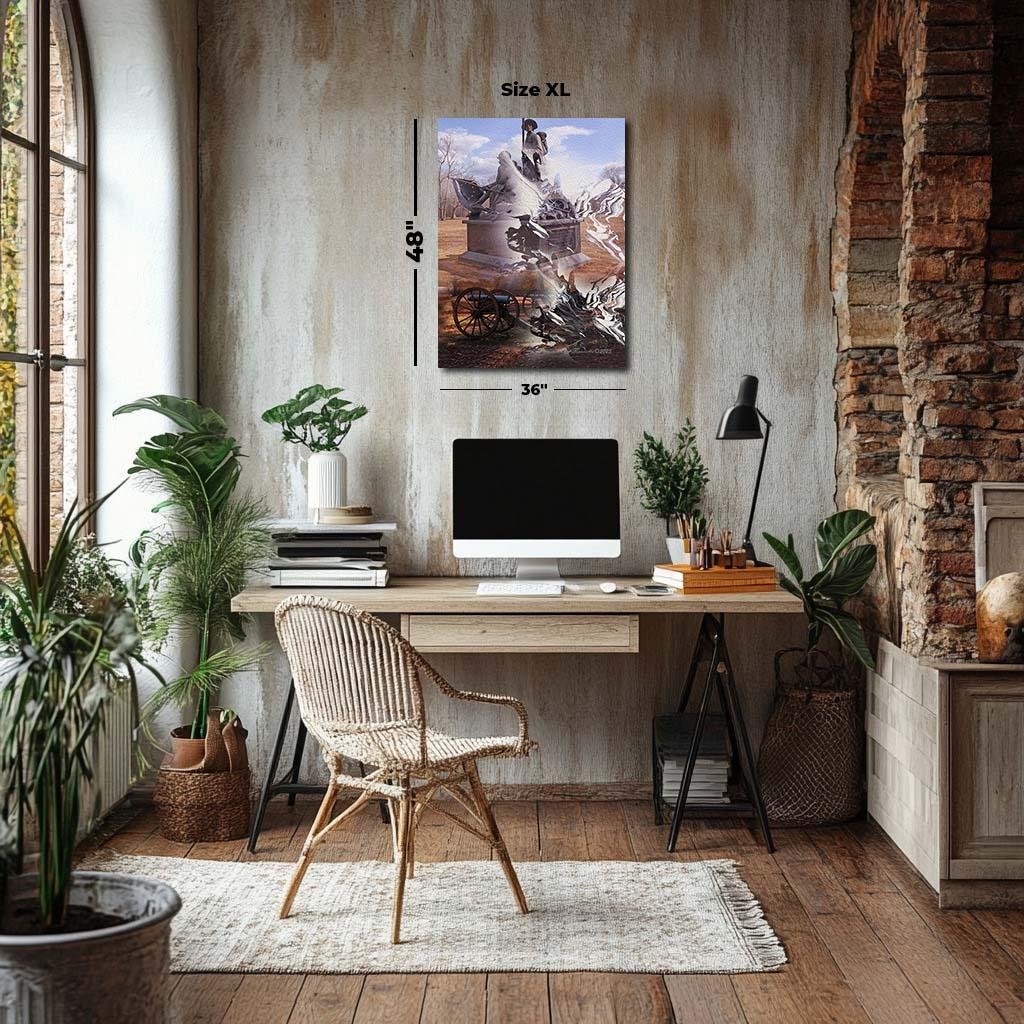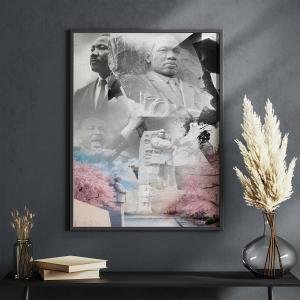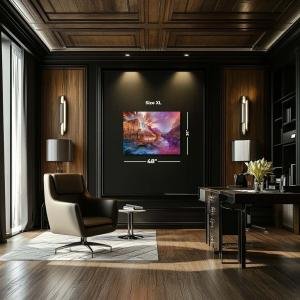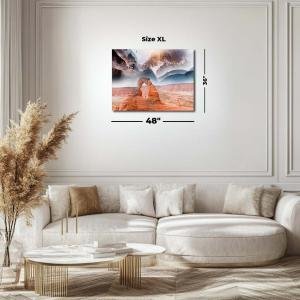Echoes of Shiloh: Reflections in Bronze and Battle
In "Echoes of Shiloh: Reflections in Bronze and Battle," I wanted to encapsulate the silent resilience of a battlefield, where the echoes of war still linger in the air. The centerpiece of this image is the soldier’s statue , which stands stoically as a sentinel over the field. This is likely a tribute to the soldiers who fought in the Battle of Shiloh , one of the bloodiest engagements of the American Civil War, fought in April 1862 . The figure, with his rifle at rest, stands in eternal vigil, a bronze monument to courage, sacrifice, and the enduring spirit of those who gave their lives.
Please see Below for Details…
Hotline Order:
Mon - Fri: 07AM - 06PM
404-872-4663
The statue feels like a guardian, not just of the land, but of the memories held there. As I created this piece, I reflected on how monuments like this are meant to immortalize the human stories of conflict—of men who left their homes, fought bravely, and many never returned. I imagined the weight of history carried on their shoulders, something I tried to symbolize with the cannon near the statue. The cannon itself is a direct reminder of the violence and destruction of war, sitting silently now, yet once it roared through this very field. It remains as a relic of the terrible beauty of war—a tool of destruction now retired, but forever a reminder of those who operated it.
What I found most powerful in composing this image was the contrast between the solidity of the statue and the abstract fluidity of the black and white paint strokes that swirl around the cannon and the statue’s base. These strokes are my attempt to bring a sense of memory, chaos, and reflection into the image. They are the ghosts of battle, the fleeting moments of fear, the confusion, and the emotions that can’t be captured by bronze or stone. They flow across the field, representing how, although the battles are long over, their influence continues to ripple through history. The chaotic nature of the brushstrokes mirrors the unpredictability of war, where moments of calm were suddenly interrupted by explosive violence.
The bare trees in the background add a layer of emotion to the scene. Their lifeless branches stretch out towards the sky, as if they too witnessed the events of the past, reaching out to tell the story of what they have seen. For me, these trees symbolize the passage of time—the cyclical nature of life and death, growth and decay. They stand like living witnesses to history, yet now they are stripped of their leaves, waiting for the renewal of spring. Just like the battlefield that has been left in peace, the trees will eventually bloom again.
The colors used in the image were intentional. The brown and earthy tones reflect the soil, the earth where so many fought and died. There’s a sense of grounding in these colors, connecting us to the physical space of Shiloh, where over 23,000 men were killed, wounded, or went missing . The black and white abstract strokes are stark and dramatic, bringing an emotional intensity to the piece. White, for me, represents the memories—the things we try to make sense of, while black represents the unknown, the darkness of war, and the things we will never fully understand. Together, they create a contrast that pulls the viewer between clarity and confusion, much like history itself.
As I worked on this piece, I thought about how these battlefields are places of reflection for us today. They are not just historical sites; they are spaces where we can connect with the past and understand the human cost of conflict. The Shiloh National Military Park , established in 1894 , serves as a reminder not only of the battle but of the human resilience that it took to overcome such a dark chapter in American history.
The plaque at the base of the statue, though obscured in parts by the abstract elements, represents the names of those who lived through these battles and those who did not. It is a monument to the past, a way of ensuring that the stories of these individuals are not forgotten, even as time erases much of the physical evidence of their existence.
In creating this artwork, my goal was to honor the history of Shiloh, to bring to light the emotions that such a place still evokes, and to remind us all of the importance of remembering the past. The cannon may be silent, the soldier may be cast in bronze, but the echoes of history remain alive in the land, in the air, and in our collective memory.
Add your review
Your email address will not be published. Required fields are marked *
Please login to write review!
Looks like there are no reviews yet.










